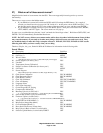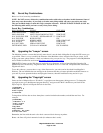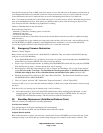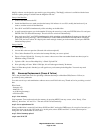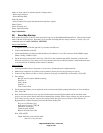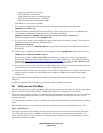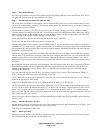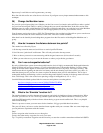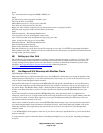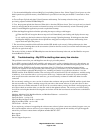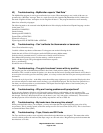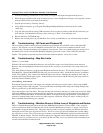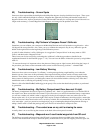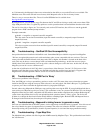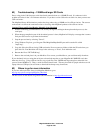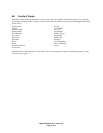
Magellan Meridian FAQ – Version 2.0
Page 28 of 30
no. Unfortunately, the Mapsend software was written before the ability to save to the SD card was available. The
Meridian stores files on the SD card in text format, while Mapsend stores its files in a binary format.
There is a way to convert these files. The tool is called GPSbabel and is available from
http://gpsbabel.sourceforge.net/
By using that tool, you can quickly copy files between the PC and SD card (using a reader) and convert them. With
large 2000 point track files, it is generally quicker to use this procedure than to download them thru the serial cable.
The tool is a bit tricky to figure out. You currently can't use the GUI interface, but will have to run the gpsbabel
program from a DOS command prompt window.
Example commands:
gpsbabel -t -i magellan -o mapsend sourcefile outputfile
This does track conversion from meridian (input file named sourcefile) to mapsend (output file named
outputfile) format.
gpsbabel -i magellan -o mapsend sourcefile outputfile
This does waypoint conversion from meridian (input file named sourcefile) to mapsend (output file named
outputfile) format.
58) Troubleshooting – SanDisk SD Card Incompatibility
One problem has been identified with SanDisk cards. Samuelhunt2002 provided this response from Magellan:
“We have recognized that certain cards with certain date codes are not compatible with our receivers. The issue
seems to be with the SanDisk brand cards (date codes 0307 or higher, this number is located on the back of the
card). This may be due to a recent change in SD card manufacturing technology. At this time we are trying to
identify these cards and determine if we can provide a software change to correct the issue. At this time, the only
thing that you can do is to use a different card.”
At the time of publication of this FAQ, there is a new release of the firmware, Version 5.12. Early users of this
firmware report that they are now able to use SanDisk cards that they could not use previously. It appears that
Magellan has solved this problem. Marine version 4.51 firmware should also contain this fix.
59) Troubleshooting -- COM Port is ‘Busy’
There are two problems in this category.
First, the COM port is always reported busy and never works at all. This most often occurs when other programs
loaded on the GPS are using the com port. PDA software is one such culprit, like Palm’s Hotsync. To get Mapsend
to operate, you’ll have to disable the application that is tying up the COM port.
Second, when using Mapsend the COM port stops working after accessing the GPS. If you upload/download data or
even test the port, Mapsend says the port is busy. This sometimes occurs on systems with Windows XP, even though
Magellan claims they are 100% compatible with XP and have been unable to duplicate this problem. Rebooting the
system clears the problem, but for only one upload/download operation (then it’s ‘Busy’ again). The fix for this
problem is to change the baud rate from the default 4800 to something higher. Both the GPS and Mapsend have to
be changed to the new baud rate, then the port will operate properly.
60) Troubleshooting -- Mapsend is taking forever to generate a map
One issue was identified that on WinXP systems, even a simple map would take hours to generate. Users discovered
that a lot of hard drive space also appeared to be consumed. The cause was isolated to WinXP’s system restore
feature. By turning off System Restore (found in System Properties) it was found the maps generated normally.
61) Troubleshooting -- Topo Map Size
The Meridian had a problem with files larger than 16MB created by MapSend Topo. This problem has been fixed in
the 3.08 firmware.



